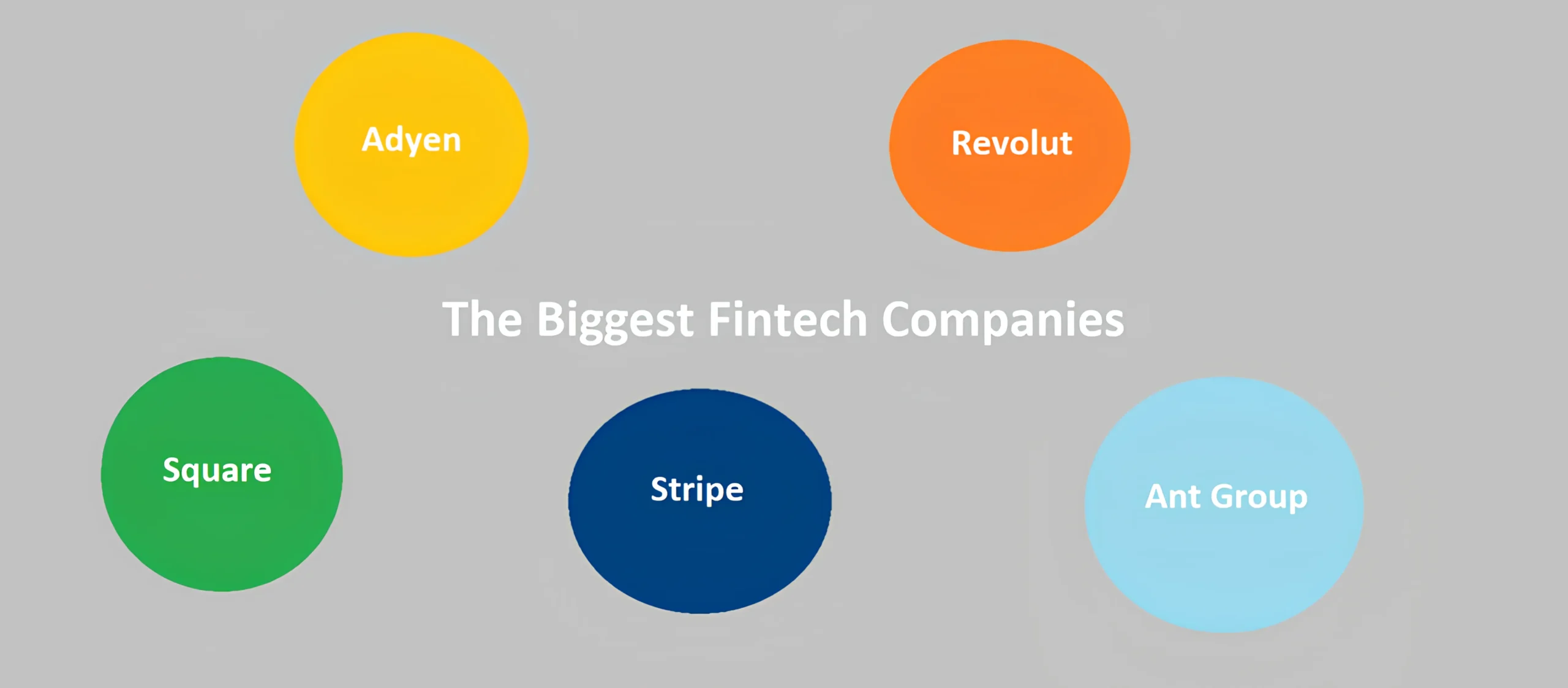Over the past decade, the financial technology sector has grown exponentially, completely altering how businesses and individuals handle their money. The topic of which fintech firm is the largest in the world is a common one, given the constant competition from both new and old businesses. Here we’ll take a look at the present fintech behemoths, analyze their influence, and speculate on the future of finance based on their success.
Understanding Fintech
We must first define fintech before we can begin to determine the largest fintech business. Financial technology, or fintech, refers to a wide range of advancements that improve, automate, and simplify financial services. From robo-advisors and blockchain technology to online lending platforms and mobile payment solutions, this encompasses it all.
The fintech landscape is diverse, with companies targeting different sectors such as:
- Payments: Money transfers, digital wallets, and payment gateways .
- Lending: Personal loans, small company funding, and peer-to-peer lending.
- Investment: Robo-advisors, trading platforms, and investment apps.
- Insurance: Fintech firms providing cutting-edge insurance solutions.
- Cryptocurrency: Platforms for buying, selling, and trading digital money
The Biggest Fintech Company: A Look at the Contenders
Multiple criteria, including as market valuation, revenue, user base, and worldwide reach, can be used to identify the “biggest” fintech business. A number of firms are often cited as frontrunners in the financial technology industry as of 2023:
1. Ant Group
Ant Group is widely considered the biggest financial technology business in the world. It was founded in 2004 as a subsidiary of Alibaba Group. Alipay, Ant Group’s crown jewel product, shook up the Chinese mobile payment industry. Over one billion people use Alipay every day, and the service processes millions of transactions.
Key Highlights:
- Market Capitalization: Ant Group was supposed to reach $313 billion in 2020 thanks to a record initial public offering (IPO), but the listing was postponed due to regulatory hurdles.
- Services: Ant Group provides a whole spectrum of financial services, including payment processing, insurance, and credit.
- Global Reach: Ant Group is actively seeking collaborations and investments to grow its impact in Southeast Asia and beyond, in addition to its home market of China.
2. Stripe
Stripe, created in 2010 by brothers John and Patrick Collison, has grown into a prominent platform for processing payments, particularly in the European and American markets. Startups and large firms alike may take advantage of Stripe’s easy and secure online payment processing.
Key Highlights:
- Market Valuation: Is one of the most valued private fintech businesses as of 2023, with a market worth of over $95 billion.
- Global Adoption: Stripe has a large worldwide footprint due to its support for many payment methods and more than 135 different currencies.
- Innovations: Subscription billing, fraud prevention, and tools for financial management are just a few examples of how Stripe is always innovating.
3. Square (now Block, Inc.)
Square has revolutionized the way small companies accept payments, founded in 2009 by Jim McKelvey and Jack Dorsey. Any business, no matter how big or little, may use it because to its user-friendly POS system and mobile payment options.
Key Highlights:
- Market Capitalization: With its Cash App and Square for Business services driving considerable growth, Square’s market valuation reached about $50 billion in 2023.
- Diversified Offerings: Among its many diversified offerings, Square is now a leading bitcoin trader, a lender through Square Capital, and the owner of a controlling share in the music streaming service Tidal.
- Focus on Inclusivity: Square is devoted to empowering underprivileged areas by offering low-cost payment options and supporting small businesses.
4. Adyen
The Dutch payment processing company Adyen has been around since 2006 and offers a consolidated platform for companies to take payments in-store, online, and through mobile devices. Major clients like Uber, eBay, and Spotify have been drawn to its straightforward pricing system and powerful technology.
Key Highlights:
- Market Valuation: Adyen’s market value is around $30 billion as of 2023.
- Global Presence: Presence on a Global Scale: Adyen accepts payments from customers in over 250 different countries.
- Innovative Technology: The business is all about making payments easy by using AI to cut down on fraud and maximize efficiency.
5. Revolut
Since its launch in 2015, Revolut has been a formidable rival to established banks across Europe and beyond. Currency exchange, stock trading, and cryptocurrency trading are just a few of the many financial services offered by this program.
Key Highlights:
- Valuation: In 2021, at one of its fundraising rounds, Revolut was valued at $33 billion.
- User Base: The platform has an impressive user base of over 20 million users, and its unique features and user-friendly layout have fuelled its rapid expansion.
- Expansion Plans: Revolut has been busy adding new services all around the world, including the United States and Australia.
What Makes These Companies Stand Out?
1. Innovation
One distinguishing feature of the most successful fintech organizations is their dedication to continuous innovation. Their solutions are designed to be user-friendly and tailored to meet unique customer demands by utilizing modern technologies like as artificial intelligence, blockchain, and machine learning.
2. Customer-Centric Approach
Customers are the first priority for these businesses, which is why they provide user-friendly interfaces, round-the-clock service, and upfront pricing. They are able to gain trust and keep clients because of their dedication to user pleasure.
3. Scalability
In the finance industry, scalability is key. Ant Group and Stripe are just two examples of scalable companies that have shown to be incredibly efficient in meeting the demands of various industries.
4. Regulatory Adaptation
The complex regulatory environment is successfully traversed by successful fintech enterprises. While pushing for rules that encourage innovation, they frequently work with regulators to guarantee compliance.
The Future of Fintech: Can These Giants Maintain Their Lead?
The ability of these organizations to remain at the forefront of fintech as it develops further depends on a number of factors:
1. Regulatory Challenges
Potentially affecting expansion plans is heightened regulatory monitoring. To stay in compliance and safeguard consumers, businesses will need to adjust to new rules as they emerge.
2. Competition
New finance businesses pop up all the time, making the scene quite congested. If they want to keep up with the competition and keep their market share, established enterprises must innovate constantly.
3. Technological Advances
To remain competitive, fintech firms need to anticipate and adapt to new technological developments, such as open banking, decentralized finance (DeFi), and artificial intelligence (AI). Keeping ahead of the competition will depend on how well you adapt to new technology.
4. Global Expansion
In developing nations, where banking services are still in their infancy, several fintech firms are eyeing expansion opportunities. The future of growth hinges on how well you handle these markets.
Conclusion
Global powerhouses in financial technology, such as Ant Group, Stripe, Square, Adyen, and Revolut, are revolutionizing the banking industry. Their capacity to respond to changes in regulation, compete effectively, and take use of technology developments will determine their future success, even though they provide creative solutions that compete with traditional banking.
The relationship between these behemoths and more conventional banks will determine the direction of financial markets in the years to come as fintech expands. Financial services will be more accessible, user experiences will be better, and customers will have more options. Anyone interested in consumer goods, investing, or starting their own business would do well to keep an eye on the dynamic landscape of financial technology.




